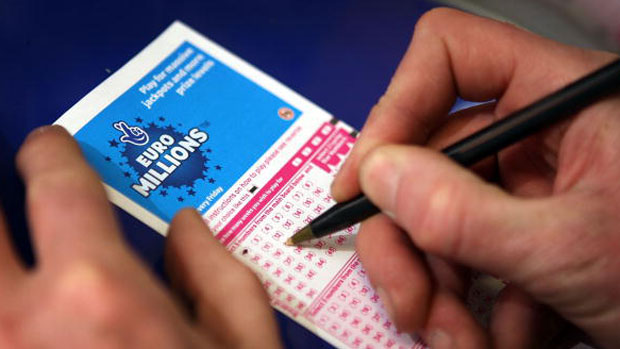National Lottery rollover: what are the chances of winning?
Rollover is the biggest since 1996, but the odds are far worse

A free daily email with the biggest news stories of the day – and the best features from TheWeek.com
You are now subscribed
Your newsletter sign-up was successful
A record £50.4m National Lottery jackpot went unclaimed on Wednesday, meaning the prize pot will be carried over to the next draw, on Saturday, when it must be won.
Saturday's rollover will therefore set a new record - at an estimated £57.8m, it will be the draw's largest prize since January 1996, when £42m was shared between three winners.
So is it time to rush out and buy a ticket? Or is the National Lottery a mug's game?
The Week
Escape your echo chamber. Get the facts behind the news, plus analysis from multiple perspectives.

Sign up for The Week's Free Newsletters
From our morning news briefing to a weekly Good News Newsletter, get the best of The Week delivered directly to your inbox.
From our morning news briefing to a weekly Good News Newsletter, get the best of The Week delivered directly to your inbox.
What are the odds of winning?
The chances of choosing six winning numbers are about one in 45 million (45,057,474 to be precise). These are significantly worse odds than before October, when the number of balls in the draw was increased from 49 to 59. You are much more likely to be struck by lightning.
What were the chances before October?
Under the old 49-ball system, you had roughly a one-in-14 million chance of winning. But Camelot argues its new system will create more winners because it has introduced an additional "millionaire's raffle", which you enter automatically when choosing lottery numbers.
A free daily email with the biggest news stories of the day – and the best features from TheWeek.com
Why is the jackpot so big?
The £50m-plus already in the pot has built up over 13 consecutive rollovers. Before the system was overhauled, rollovers were capped at four weeks. Now they can continue indefinitely until the prize is more than £50m.
What happened last night?
A bigger jackpot means higher ticket sales - so high that Camelot's website crashed under the pressure last night, leaving people unable to buy tickets for about ten minutes. By 7.30pm, 200 tickets were being sold every second.
Do more entrants mean worse odds?
Yes, but only this week. If more people enter it is more probable that someone will match all six numbers, denying people who have matched fewer numbers the chance of winning. Normally, however, you have the same chance of matching six numbers, and therefore winning, regardless of how many people enter – although the size of the prize will vary.
What if I die before the draw?
This is a more serious concern than you might imagine. In 2011, BBC Radio 4's More or Less programme said the chances then of winning were roughly "as tiny as the odds of dying in the period between buying the ticket and the lottery draw".
What time of day should I buy my ticket?
Ronnie Bowie, former president of the Institute and Faculty of Actuaries, told More or Less that because he was 57 at the time, he should buy a ticket around five minutes before the draw in order to have more chance of winning than dying before the numbers were announced.
Should I play the stock market instead?
The Evening Standard reports that Elijah Oyefeso, a university drop-out from London, claims he invested his student loan three years ago and now makes between £20,000-£30,000 "in a bad month".
Is that realistic?
If Oyefeso's outrageous success - he found fame when he accidentally crashed his gold Lamborghini into a £60,000 Bentley - seems implausible, you could get some more realistic advice from The Week's guide to investing in the stock markets.
-
 James Van Der Beek obituary: fresh-faced Dawson’s Creek star
James Van Der Beek obituary: fresh-faced Dawson’s Creek starIn The Spotlight Van Der Beek fronted one of the most successful teen dramas of the 90s – but his Dawson fame proved a double-edged sword
-
 Is Andrew’s arrest the end for the monarchy?
Is Andrew’s arrest the end for the monarchy?Today's Big Question The King has distanced the Royal Family from his disgraced brother but a ‘fit of revolutionary disgust’ could still wipe them out
-
 Quiz of The Week: 14 – 20 February
Quiz of The Week: 14 – 20 FebruaryQuiz Have you been paying attention to The Week’s news?